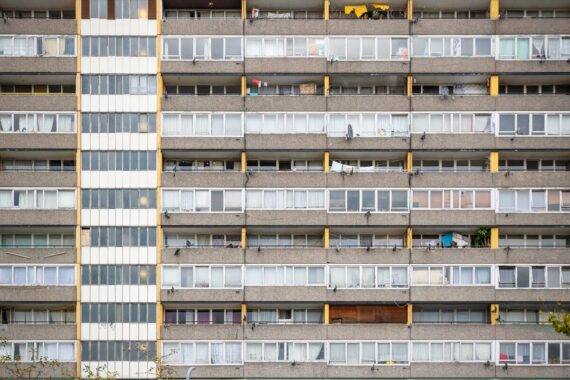Over one million children living in homes causing asthma and chronic illness

More than a million children are living in unsafe homes that are making them sick, paediatricians have warned.
A report from the Royal College of Paediatrics and Child Health (RCPCH) found 1.5 million children were living in homes that were causing or contributing to asthma, respiratory infections, and chronic illness.
Yet air pollution, housing insecurity and overcrowded living conditions with indoor pollutants such as damp and mould are all preventable, the college noted.
The report highlights that specialist clean air clinics that have been trialled at Alder Hey Children’s Hospital in Liverpool and the Royal London can help reduce this harm, but sustainable funding is needed.
Run by clinicians alongside housing experts, the clinics have helped families secure emergency repairs or get rehoused leading to significant improvements in children’s health, the report found.
Case studies from the report show some families are having to choose between the threat of mould and damp damaging their health or being made homeless.
Professor Ian Sinha, a respiratory consultant at Alder Hey set up the clinic after realising that a significant proportion of his work in caring for children with respiratory problems involved addressing environmental and housing issues.
After longer consultations, taking into account environmental factors in the home that may contribute to their illness patients are given a full medical report which can be sent directly to housing associations.
The Royal London Clinic was set up with funding from charity by clinicians who had been involved in the case of Ella Kissi-Debrah, a nine-year-old girl who had a fatal asthma attack with an inquest later ruling that air pollution had made a material contribution to her death.
Care for children referred – by the GP or others – can include home visits and tests for mould with bespoke advice on exposure to environmental pollutants.
In addition to calls for clinicians to incorporate environmental history into routine care, the report also calls for the UK Government should pass a UK-wide Clean Air Act, set strict air quality standards and align with WHO Air Quality Guidelines.
The college also wants to see the expansion of Awaab’s Law across the UK to include private renters.
And local authorities and housing teams need to improve housing conditions with faster response to mould and damp complaints, it said.
RCPCH officer for climate change, Dr Helena Clements, said: ‘Air pollution, in combination with poor-quality housing are major, avoidable drivers of poor health among children and young people, especially in deprived communities.
‘As a paediatrician, I know how these conditions can have devastating long-term consequences. Children and families are living in environments which are actively making their health worse, increasing pressure on already strained clinicians and health services.’
But clean air clinics show what is possible, she added. ‘These clinics are securing safer housing, reducing exposure to pollution, and helping children breathe more easily but they are not yet part of routine care.
‘Without NHS support and stronger government action on housing and air quality, many families will remain without the help they need.’
Chloe Owen, clean air policy manager at Asthma + Lung UK, said: ‘Air pollution is a social justice issue.
‘People on lower incomes and minoritised ethnic groups are exposed to disproportionately higher levels of air pollution. They also tend to contribute the least to the problem and are more likely to have poorer health generally.
‘If the government doesn’t rapidly clean up the air, the gap between those that have the most and those that have the least will widen further.’
A report from the charity last year warned that children from the most deprived areas are four times more likely to die from an asthma attack.
A Government spokesperson said: ‘Air pollution is a serious public health issue, and we are committed to tackling this issue across the country.
‘We have already provided £575 million to support Local Authorities to improve air quality and are developing a series of interventions to reduce emissions so that everyone’s exposure to air pollution is reduced.’
Visit Pulse Reference for details on 140 symptoms, including easily searchable symptoms and categories, offering you a free platform to check symptoms and receive potential diagnoses during consultations.
Related Articles
READERS' COMMENTS [1]
Please note, only GPs are permitted to add comments to articles












They should just move out of these dangerous houses, and be accomodated in the thousands of air-bnb and vacant holiday lets around the countryside. Problem solved. Low rents set by government, not landlord, with rapid punishment for substandard landlords, would also help.